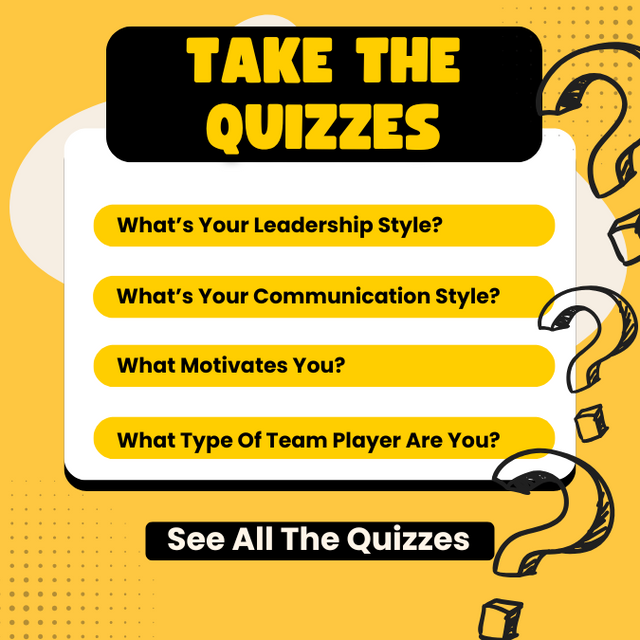Inspiring Leadership Examples from History
What makes a leader truly inspiring? Is it their charisma, their vision, or perhaps their ability to rally people towards a common goal?
Throughout history, we've seen a myriad of leaders who've left indelible marks on the world. Their leadership styles, though varied, have one thing in common - they inspire.
In this article, we delve into some of the most inspiring leadership examples from history. From Winston Churchill's stirring speeches to Mahatma Gandhi's non-violent protests, these leaders have shaped the world as we know it.
But why look to the past? Because history is a treasure trove of lessons. It offers us a chance to learn from the successes and failures of those who came before us.
So, whether you're a corporate manager, a human resources professional, or a leadership coach, join us as we journey through time, exploring the leadership styles that have stood the test of time. Let's uncover the secrets of inspiring leadership together.
Defining Inspiring Leadership Through History
Defining "inspiring leadership" is no small task. Is it vision, courage, or the ability to unite people? Historical leaders often personify these qualities uniquely.
In history, inspiring leaders have risen in times of need. They have used their skills to guide others through uncertainty and change. Their actions often light the path forward.
Consider Alexander the Great's strategic genius or Eleanor Roosevelt’s dedication to human rights. Each leader brought unique skills to their roles. Each left an undeniable legacy that reshaped societies.
Moreover, leadership is not just about grand gestures. It is often the subtle, steadfast dedication to a cause that leaves a lasting impact. Mother Teresa, for example, showed that leadership rooted in compassion can be transformative.
In the modern world, understanding these historical examples can guide contemporary leaders. Today's leaders can draw from history to develop leadership styles that inspire and endure. A skilled keynote speaker on leadership can bring these historical lessons to life, helping teams connect timeless principles to today's challenges. This ongoing dialogue between past and present enriches our understanding of what it means to lead.
The Timeless Relevance of Historical Leadership
Historical leadership examples hold timeless relevance in today's world. Why do we look to the past to guide our present leadership decisions? History offers a treasure trove of strategies and lessons that remain applicable.
Consider Winston Churchill's effective communication during WWII. His speeches uplifted a nation amid despair, showcasing how strong communication can rally people in challenging times. Effective communication remains a core facet of leadership, transcending time and context.
Additionally, the leadership of figures like Gandhi or Mandela shows the power of principles such as non-violence and unity. Their approaches continue to resonate, inspiring leaders to embrace these values today. Leadership lessons from history inform the development of smart goals that drive progress and innovation, offering valuable insights for modern leaders.
Winston Churchill: Communication as a Leadership Tool
Winston Churchill’s leadership during World War II remains a powerful example of using communication to lead. Faced with enormous adversity, he understood the need to inspire and unite the public.
His speeches were masterclasses in motivation, filled with resilience and hope. Churchill knew that words could galvanize a nation and bolster collective morale. His ability to articulate a compelling vision rallied people to endure hardships and strive for victory.
Churchill’s communication went beyond speeches; it involved listening and adapting messages to fit the situation. This adaptability ensured his words resonated widely, bridging societal divides.
Modern leaders can learn from Churchill by valuing clear, persuasive communication. By crafting messages that connect emotionally, leaders can guide their teams through challenges. Effective communication remains a timeless tool for those seeking to inspire and mobilize others.
Mahatma Gandhi: Non-Violent Protest and Transformational Leadership
Mahatma Gandhi remains a monumental figure in history for leading India to independence through non-violent protest. His leadership transformed not just a nation, but the world’s understanding of resistance.
Gandhi's method emphasized moral courage over physical force. He proved that enduring change could be enacted through peaceful means. His commitment to non-violence inspired countless movements across the globe seeking justice and freedom.
At the heart of Gandhi's leadership was empathy and a deep understanding of others’ struggles. He believed in leading by example, living simply, and adhering to his principles unwaveringly. This authenticity drew people to his cause, fostering a powerful movement for change.
Today, leaders can learn from Gandhi's transformational approach by embracing empathy and moral integrity. His example demonstrates that authentic leadership, grounded in respect and non-violence, can inspire profound and lasting change.
Nelson Mandela: Leadership Rooted in Forgiveness and Unity
Nelson Mandela's leadership style offers profound lessons in the power of forgiveness and unity. He played a pivotal role in dismantling apartheid and building a new, inclusive South Africa.
Mandela’s time in prison taught him that empathy and forgiveness could bridge even the deepest divides. He chose reconciliation over revenge, showing immense personal strength and strategic foresight. This decision prevented a cycle of hatred and violence.
His leadership approach focused on unity, bringing together diverse groups for the national good. Mandela's vision involved building a harmonious society, recognizing the importance of inclusion in healing a fractured nation. Through compassion and collaboration, he forged a path to peace.
For leaders today, Mandela exemplifies the strength found in forgiveness and the courage to promote unity. His legacy encourages leaders to prioritize inclusive dialogue and resolve conflicts with empathy and foresight.
Alexander the Great: Loyalty and Military Innovation
Alexander the Great stands out for his strategic prowess and ability to inspire fierce loyalty. By the time of his death, he had built one of the largest empires in history.
His leadership style was rooted in leading by example. Alexander fought alongside his soldiers, earning their respect and unwavering devotion. This encouraged immense loyalty, critical in his successful campaigns.
Alexander was also a master of military innovation. He utilized new tactics and formations, adapting them to suit different battlegrounds. His strategic agility often caught enemies off-guard, securing decisive victories.
Current leaders can learn from Alexander's bold combination of loyalty and innovation. His story underscores the importance of hands-on leadership and the willingness to adapt strategies to changing circumstances.
Mother Teresa: Servant Leadership and Compassion
Mother Teresa remains an emblem of servant leadership, known for her unwavering commitment to helping others. Her leadership style was profoundly rooted in compassion, serving the needy without expecting anything in return.
Her work in Calcutta showcased a leadership model grounded in humility and empathy. By dedicating her life to the destitute, she set an example of selfless service that transcends borders and cultures.
Mother Teresa believed in the power of small acts of kindness. She saw value in every human life, reminding us that leadership often starts with addressing the simplest needs of others.
Modern leaders can emulate Mother Teresa's focus on empathy and service. Her story is a timeless reminder that true leadership is about lifting others through compassion and understanding.
Martin Luther King Jr.: Articulating a Vision for Civil Rights
Martin Luther King Jr. stands as a beacon of visionary leadership in the fight for civil rights. His eloquence and ability to articulate a compelling vision united millions in the pursuit of equality.
King's leadership was marked by his commitment to justice through peaceful means. His famed "I Have a Dream" speech inspired a generation to envision a more just and equal society.
Through non-violent protest and persuasive oratory, King effectively mobilized diverse groups towards a common goal. He showed that visionary leadership requires clarity of purpose and the courage to stand up for one's ideals.
Today's leaders can learn from King's unwavering dedication to his vision. His example teaches us that true leadership involves a steadfast commitment to creating a better world for all.
Abraham Lincoln: Navigating Political Complexity with Adaptive Leadership
Abraham Lincoln's presidency during the Civil War exemplifies adaptive leadership. Faced with a nation divided, he skillfully navigated complex political landscapes to preserve the Union.
Lincoln's ability to adapt his strategies to ever-changing circumstances was crucial. He understood the importance of flexibility while maintaining a clear focus on the ultimate goal of ending slavery.
His leadership was characterized by empathy and an inclusive approach to decision-making. Lincoln often sought counsel from his diverse cabinet, valuing diverse perspectives to inform his choices.
Modern leaders can draw inspiration from Lincoln’s approach to handling crises with composure. His legacy reminds us that adaptability, coupled with integrity and vision, forms the cornerstone of effective leadership.
Eleanor Roosevelt: Participative Leadership in Human Rights Advocacy
Eleanor Roosevelt's leadership style was grounded in participation and collaboration. As First Lady, she championed human rights and social justice issues, emphasizing the power of collective action.
Her work with the United Nations, particularly in drafting the Universal Declaration of Human Rights, showcased her commitment to inclusivity. Roosevelt believed in involving diverse voices in decision-making processes, setting a precedent for participatory leadership.
Roosevelt's leadership was transformative, as she actively engaged with marginalized groups. Her focus on listening and empathy allowed her to advocate effectively for those often unheard.
Today, leaders can learn from Eleanor Roosevelt's participative approach. Engaging with others and valuing diverse perspectives can lead to more equitable and inclusive outcomes.
Leonardo da Vinci: Intellectual Leadership and Diverse Contributions
Leonardo da Vinci stands out as a quintessential intellectual leader. His contributions to art, science, and engineering display a profound commitment to exploration and innovation.
Da Vinci's insatiable curiosity drove him to push the boundaries of knowledge across multiple fields. His meticulous observations and relentless pursuit of learning remain exemplary for leaders today.
His drawings and inventions, from anatomical sketches to flying machines, highlight his ability to fuse creativity and logic. This integration of diverse talents made Da Vinci a Renaissance polymath, a leader who embraced complexity.
Modern leaders can draw inspiration from Da Vinci's example by fostering a culture of innovation and lifelong learning. Encouraging interdisciplinary thinking can fuel groundbreaking advancements and unique solutions.
John F. Kennedy: Charismatic Leadership During the Cold War
John F. Kennedy's leadership during the Cold War was marked by charisma and vision. His ability to connect with the public and promote confidence was crucial in a time of tension.
Kennedy's speeches, like his "Ask not what your country can do for you" inaugural address, rallied a nation. His eloquence and presence provided reassurance in uncertain times, demonstrating how communication can be a powerful leadership tool.
In navigating the Cuban Missile Crisis, Kennedy's calm and calculated approach helped avert a nuclear disaster. His skillful negotiation and decision-making showcased the impact of maintaining composure under pressure.
Modern leaders can learn from Kennedy by cultivating charisma and effective communication strategies. These qualities can inspire and unify teams, especially during challenges, promoting a shared vision.
Elizabeth I: Situational Leadership and Political Acumen
Elizabeth I displayed exceptional leadership by mastering the art of adaptability. During her reign, she skillfully navigated complex political landscapes, often changing strategies to suit the context.
Her reign, known as England's Golden Age, was marked by stability and prosperity. Elizabeth's ability to balance interests and make pragmatic decisions was key to her success, allowing her to address both internal and external challenges.
One of her great strengths was leveraging diplomacy to maintain peace, most notably through her cautious approach to marriage alliances. Her refusal to marry allowed her to keep sovereign control, highlighting her astuteness in political maneuvering.
Today's leaders can draw inspiration from Elizabeth I by remaining flexible and situational in their approach. Understanding the context and modifying strategies accordingly can be the difference between success and failure.
Cesar Chavez: Ethical Leadership in Labor Rights
Cesar Chavez championed the rights of farmworkers with unwavering commitment. His leadership was deeply rooted in ethics and justice, focusing on non-violent methods to achieve significant reforms.
Chavez co-founded the United Farm Workers (UFW) and led the Delano grape strike. His use of boycotts and marches raised awareness and garnered nationwide support for labor rights. His ethical approach emphasized dignity and equity for workers.
His leadership style was collaborative. He built coalitions across diverse groups, understanding that unity and solidarity were vital for enacting change. This inclusivity helped uplift marginalized voices in the movement.
Modern leaders can learn from Chavez the importance of standing firm on ethical principles. His legacy reminds us that justice-driven leadership can inspire movements and promote meaningful social change.
Steve Jobs: Collaborative Leadership in Technology Innovation
Steve Jobs transformed the tech industry with an unparalleled vision for innovation. His leadership style blended collaboration with a relentless pursuit of excellence. This unique approach led to revolutionary products like the iPhone and MacBook.
Jobs wasn't just a figurehead; he was an active participant in product development. He surrounded himself with talented individuals, fostering a culture of openness and creativity. He valued diverse perspectives, sparking innovation through collaboration.
Despite his demanding nature, Jobs inspired loyalty and dedication. Employees were motivated to transcend limitations and strive for greatness. His charisma and drive created an environment where groundbreaking ideas could thrive.
Through Jobs’ leadership, we learn the power of bringing together visionary thinking with team collaboration. His legacy showcases the impact of fostering innovation through collective effort, a valuable lesson for aspiring leaders.
Harriet Tubman: Inclusive Leadership and the Fight for Equality
Harriet Tubman stands as an iconic figure in the fight for equality. Her leadership was rooted in an unwavering commitment to freedom. She guided countless slaves to safety through the Underground Railroad, demonstrating immense courage.
Tubman's leadership style was inclusive and empowering. She inspired trust and confidence among those who followed her. Her determination and ability to unite people from different backgrounds were key to her success.
Tubman's story is one of resilience and bravery. In the face of overwhelming odds, she showed that leadership means taking bold actions. Her actions were guided by a deep sense of justice and equality for all.
Her legacy teaches us the importance of inclusion and empathy in leadership. Tubman's life is a testament to the power of collective effort in achieving a common goal. Her courage and dedication continue to inspire leaders today.
Julius Caesar: Strategic Leadership and Political Maneuvering
Julius Caesar remains a monumental figure in history, known for his strategic prowess. As a leader, he navigated complex political landscapes with astute maneuvering. His leadership legacy is marked by bold decisions and calculated risks.
Caesar demonstrated an incredible ability to forge alliances. He understood the intricate dynamics of power and used them to his advantage. This skill allowed him to expand the Roman Empire significantly.
One cannot overlook Caesar's talent for inspiring loyalty. His military successes were driven by innovative tactics and the deep trust he cultivated. Soldiers and senators alike followed him with unwavering dedication.
Caesar's life offers invaluable insights into strategic thinking. His leadership teaches us about the importance of strategic alliances in achieving organizational goals. Modern leaders can learn from his adaptability and relentless pursuit of greatness.
Modern Leaders: Carrying the Torch of Historical Greats
Today's leaders stand on the shoulders of historical giants. They've inherited lessons in leadership from centuries past. These lessons continue to influence contemporary strategies and approaches.
One such leader is Elon Musk, who embodies the ambition seen in history’s trailblazers. Musk's goals in space and sustainable energy echo the visionary pursuits of past leaders. His willingness to take risks mirrors the daring nature of historic figures.
Similarly, Oprah Winfrey shines as an empowering leader in media and philanthropy. Her focus on personal growth and empowerment reflects the compassionate leadership seen in historical figures like Mother Teresa. Winfrey's influence extends beyond traditional boundaries, inspiring a global audience.
In the technology sector, Satya Nadella revitalized Microsoft with empathy-led transformation. Drawing from the collaborative spirit exemplified by Steve Jobs, Nadella emphasizes culture change and innovation. His leadership is a testament to modern adaptability and vision.
These modern figures illustrate that the principles of great historical leadership still apply. They demonstrate how timeless qualities like vision, empowerment, and adaptability are essential. By embracing these traits, today’s leaders continue to inspire and drive progress.
Conclusion: Lessons for Today's Leaders
Historical leaders have left an indelible mark on the fabric of time. Their examples offer invaluable lessons for contemporary leadership practices. By studying their strategies and beliefs, today's leaders can gain powerful insights.
Key leadership qualities, such as effective communication and empathy, transcend time. Figures like Gandhi, Mandela, and Churchill demonstrated these traits with great impact. Their legacies continue to teach the importance of resilience and clarity in guiding others.
Today's leaders should also remember the emphasis on inclusivity and innovation. Historical examples encourage us to foster open environments and embrace change. By reflecting on these lessons, leaders can inspire and motivate their teams toward shared goals.
Ultimately, the past holds a treasure trove of leadership wisdom. This wisdom is a crucial resource for those aspiring to lead effectively in our rapidly changing world. By drawing from these historical insights, modern leaders can forge new paths to success.
















